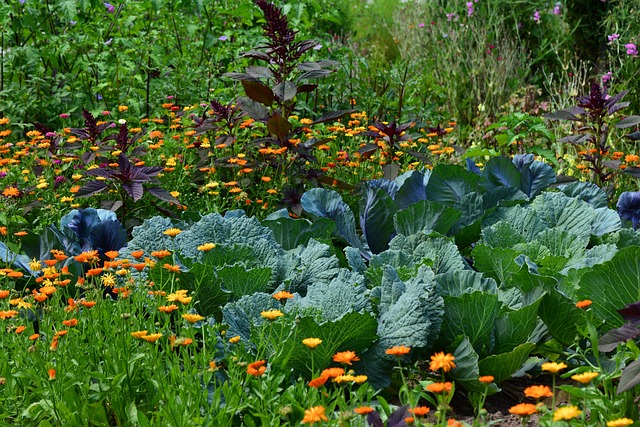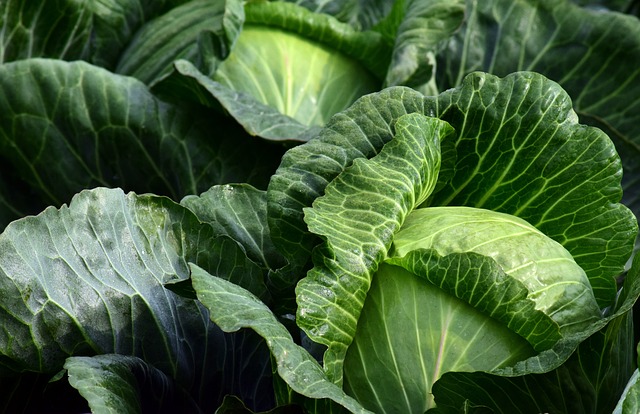Introduction – Garden Farming To Cut Carbon Emissions
Transportation accounts for about 10% of food carbon emissions. Garden farming is a way to cut down that cost. Gardening is also a craft that brings a lot of joy to everybody. If you do it for the first time, you will learn many things to make your life easier. It’s a great idea to grow what you eat. You will know where the food comes from and save you money. If you are already a gardener, you have probably experienced plant problems. They can get damaged by different pests, or they can suffer from diseases.

This is why it’s important to start using natural products that won’t harm your flowers or vegetables but will keep them healthy. Your garden soil also needs fertilizer, and treating it with organic compost is a good idea if you want the best results. One of the most common ingredients in this recipe is fish meal because certain nutrients are found in seawater that benefits plants growth.
Reasons To Grow What We Eat
Sustainable food habits are one of the most important things we can do to help protect our planet and ensure that future generations have access to healthy food. By growing our food, we enjoy fresh, flavorful produce straight from our gardens and reduce our reliance on commercial agricultural practices that may be harmful to the environment. Here are 5 reasons why we need to grow our own food.
Economics
When you grow your food, you essentially create your own money. Growing food requires very little investment, and you can save money on groceries by reducing your family’s reliance on store-bought produce.
Health
Growing your food allows you to control the quality of your food and avoid exposure to harmful chemicals or pesticides commonly used in commercial farming. And when you grow nutrient-rich foods like fruits and vegetables, your whole family benefits from improved health and well-being.
Connection
Gardening is a social activity that fosters community engagement and helps build stronger bonds with our friends, families, and neighbors. By sharing knowledge, tips, and resources with others who enjoy gardening, we all become better stewards of the land and support each other in this important endeavor.
Sustainability
Growing your food is a sustainable way to manage resources and reduce waste. Whether you grow your gardens in containers, raised beds, or traditional plots in the ground, you can be sure that each plant will get exactly what it needs to thrive. And composting food scraps and other organic garden waste can turn this once-wasted material into valuable fertilizer for your plants.
Environmental Stewardship
As responsible citizens of our planet, we must protect and nurture the natural environment that sustains us all. By growing our food organically and sustainably, we help preserve the health of our soils and water resources while supporting biodiversity and reducing our carbon footprint. As more people begin to take up this important practice, we can all positively impact our planet’s health. In summary, by growing what we eat, we reap numerous benefits for ourselves but also help to safeguard the environment for generations to come.
Grow What You Eat
Growing your food creates a strong sense of satisfaction and self-sufficiency. Not only can you guarantee that your plants are free of harmful chemicals, but you also have total control over the quality and freshness of your produce. Whether you’re a seasoned gardener or just starting, here are a few tips to help you grow healthy and vibrant plants:
1. Invest in high-quality soil and fertilizer. Your garden will only be as healthy as the soil it’s grown in, so use nutrient-rich compost that provides all the essential nutrients for optimal plant growth.
2. Pay attention to watering patterns. Many novice gardeners tend to over-water their plants due to a lack of understanding about each plant’s individual water needs. Keep an eye on the weather, and always make sure your plants have enough water to thrive.
3. Stay vigilant against pests and diseases. Pests, such as aphids, slugs, and caterpillars, can quickly damage or kill your plants if left unchecked. Take steps to prevent these invaders from invading your garden by regularly using natural repellents like soapy water or neem oil.
4. Cultivate a sense of community. One of the best things about gardening is that it’s a wonderful way to connect with other people who share your love for this craft. Join a local gardening club or attend workshops where you can learn from more experienced gardeners and swap tips on how to grow beautiful flowers and nutritious vegetables. With time, you’ll find that gardening is not just a hobby but a community lifestyle.
What Food Is Good To Grow?
Many different types of food are good for growing, including fruits, vegetables, herbs, and grains. In particular herbs generate high profit and revenue by weight. Popular and specific examples of these foods include tomatoes, lettuce, kale, carrots, strawberries, basil, wheat berries, and peas. Choosing the right foods to grow will depend largely on your climate and available space in your garden.
To start growing your food at home, consider consulting with a local gardening expert or researching online to learn more about what grows best in your area. With time and practice, you will gain the skills and knowledge needed to become a successful gardener and enjoy a plentiful harvest of healthy homegrown foods all year round.

Why Do Gardeners Need To Know How To Compost?
Composting is essential for any gardener who wants to grow healthy, vibrant plants and reduce their environmental footprint. Composting allows you to recycle food scraps and other organic materials into valuable fertilizer. Still, it also helps improve soil fertility and protect natural ecosystems from harmful chemicals or pesticides used in commercial farming practices.
To successfully compost (ShrinkThatFoodprint’s own guide) at home, you need to understand the different components that create this substance, such as carbon and nitrogen. By learning which organic materials work best for composting and how to balance these different elements, you can create a nutrient-rich fertilizer to help your plants thrive.
Additionally, gardeners need to know how to properly maintain their compost pile or bin, keeping it aerated and moist while allowing air flow to facilitate the breakdown of organic material into usable compost. This takes some trial and error at first, but with time and practice, you can master this important gardening skill.
Learning how to compost is great if you want to grow healthy crops and reduce your environmental impact. Whether you are new to gardening or an experienced green thumb, having this knowledge will help you become a more sustainable and responsible gardener.
Alternatives To Growing
Foraging for fruits and vegetables in the wild is another low impact, sustainable way to source food. You don’t even have to forage your own, because you can search online and in farmer’s markets for food items that have been foraged by others. Wild cranberries are enormously popular as a unique foraged food source in the US.
Conclusions
In conclusion, growing what you eat is a great way to take control of your health and reduce your environmental impact. To be successful at gardening, it is important to have a solid understanding of the different factors that go into plant growth, such as sunlight, soil quality, and water supply. You should also learn how to compost to create rich fertilizers for your plants and avoid adding harmful chemicals or pesticides to the environment. With time and practice, you will become a skilled gardener who can successfully cultivate nutritious food in your backyard.
